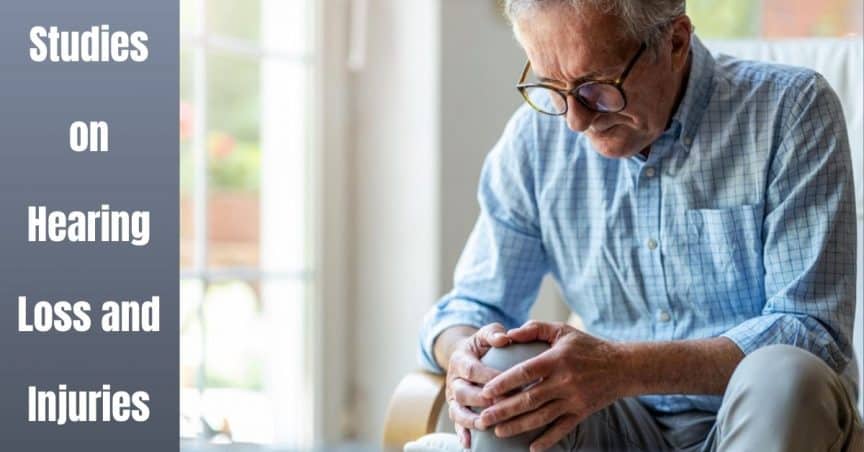- A Closer Look at Common Myths About Hearing Loss - May 7, 2024
- The Impact of Pets on Emotional and Hearing Health - April 26, 2024
- Strategies for Coping with Single-Sided Deafness - April 16, 2024
You might not be surprised to learn that hearing loss can lead to some rare injuries. Imagine, for example, if you had hearing loss that was serious enough not to miss the voice of someone telling you to “look out” when a baseball was flying in your direction. If that baseball struck your head and gave you an injury, the connection between hearing loss and injury would be undeniable.
Similarly, those who are deaf or hard of hearing can miss emergency signals like fire alarms unless they are equipped with visual signals, as well. However, the risk of injury related to hearing loss seems to be greater than these relatively rare forms of injury.
A new study has found that there are high rates of injury among those with hearing loss, and the amount of risk seems to increase with the degree of hearing loss. Let’s look more closely at the study, as well as the implications for those with hearing loss.
The Study
Doctors Harrison W. Lin, Hossein Mahboubi, and Neil Bhattacharyya at the University of California Irvine and Harvard Medical School recently conducted a study using “big data” to learn about the patterns of hearing loss and injury. The dataset they used was enormous: The National Health Interview Survey.
This study asked a battery of questions to 232.2 million individuals 18 years or older from 2007 to 2015. With this rich and extensive data set in hand, health researchers with all kinds of questions are about to determine the relationship between seemingly unrelated variables. Only at the level of such a large population can some of these relationships become evident. These authors were curious to know about the relationship between hearing loss and injury, so they used responses from people who had an accidental injury in the last 3 months and self-reported levels of hearing ability.
Respondents answered if their hearing was “excellent,” “good,” “a little trouble,” “moderate trouble,” “a lot of trouble,” and “deaf.” The researchers were also interested in relationships with types of injuries related to driving, work, and leisure/sports.
The Results
Their findings were striking at each step of the study. First, they noted that out of all those who had injuries, one 1 in 6 said that their hearing was less than “excellent” or “good,” but we know that a high proportion of people in the general population do have hearing loss of some kind.
The results became more significant at more severe degrees of hearing loss. For instance, those who reported having “a lot of trouble” hearing were twice as likely to have had an accidental injury. When it came to the different categories of accidental injuries, both work-related and leisure-related injuries were more common among people with hearing loss than those without hearing loss.
With these results, the authors were curious to know more about the scenarios connecting hearing loss to accidental injury.
The Implications
Beyond the situations that have a clear relationship between hearing loss and injury, these numbers are just too high to explain the entire story. Perhaps some of the other cases have to do with our reliance on hearing to orient to the world spatially.
Although this relationship happens unconsciously, we use hearing to get a sense of space due to sound reflection, reverberation, and echo. Even while moving through a room with furniture it can be helpful to hear sound bouncing off of objects to be able to avoid them.
With such an extensive relationship between hearing and spatial orientation, it is possible that hearing loss is leading to other types of injuries, beyond those in which a person missed a warning shout or alarm.
If you have hearing loss, these results also remind us that it is important to get a hearing test to know just how severe it has become. Those with mild hearing loss had much less likelihood of accidental injury than those with serious trouble hearing, so a hearing test is the best way to know if you are at a higher risk. Contact us today to set up a hearing test if you have not had one recently, as hearing ability can change quite rapidly.

